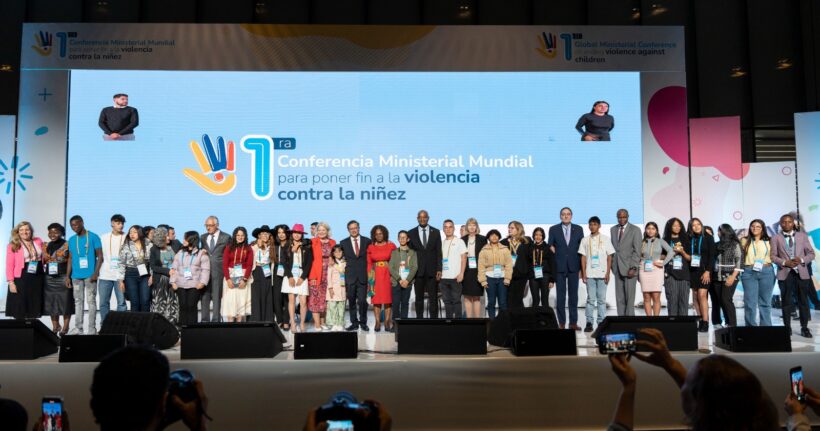By: Alicia Muñoz Bohorquez
Bogotá, Colombia
A historic meeting took place this month in Bogota: the First Global Ministerial Conference to End Violence against Children. The event was attended by more than 100 member countries of the World Health Organization (WHO), who came together to address the scourge that affects more than half of the world’s children and adolescents. According to the Together For Girls Foundation, one in five girls and one in seven boys experience sexual violence in childhood. In addition, UNICEF notes that one billion children have experienced physical, emotional and sexual abuse, which can lead to mental health problems and sexually transmitted diseases, among others.
The conference was held under the leadership of the governments of Colombia and Sweden, in collaboration with WHO and UNICEF. Colombia was the host of this important meeting due to the efforts being made to protect children and adolescents, with public policies and programmes developed through the Colombian Institute of Family Welfare (ICBF), a state entity that protects and promotes the guarantee of rights and the comprehensive development of children and adolescents and their families.
The Colombian president, Gustavo Petro Urrego, participated in the summit, where he stated that violence against children and adolescents not only affects individual rights but also social and economic development globally. He called on world leaders to commit to eradicate all forms of violence, and thus ensure a better future for children and adolescents.
In addition, the President also spoke about the case of the Mucutuy children as an example of success; four siblings, belonging to an indigenous community, who survived 40 days in the Amazon jungle after a plane crash in which their companions died. On 9 June 2023, the four siblings were successfully rescued and are now under the care and protection of the ICBF. This story captured national and international attention due to the deployment of the government and relief agencies, among others, and also became a milestone in raising public awareness.
For two days, panelists from around the world spoke about issues related to violence affecting children. In this space, the voices of children were essential to be made visible and taken into account in the agreements. The importance of guaranteeing that all children live free from violence, with the 2030 Agenda for Sustainable Development, was also highlighted. In addition, in forums prior to the conference, issues such as the non-revictimisation of children and adolescents in the media and the impact of the conflict in Palestine, where children face extreme violence, emotional trauma and, in many cases, death, were discussed. The importance of providing psychosocial support is being discussed through various initiatives, as protection is critical in contexts of war.
The conference ended with several agreements and achievements, including the creation of a platform for survivors of violence to share experiences and best practices in prevention. In addition, the Group of Friends of the Conference, composed of 20 countries and 9 international organisations, was formed, and the first global youth-led movement to prevent child violence was launched, according to the Colombian Foreign Ministry report.
Thanks to the participation of 1,400 delegates from 119 countries, Colombia was recognized in the Guinness World Records, an initiative promoted by the Together For Girls Foundation and Guinness World Records to document the first global event to address the issue of violence against children.










